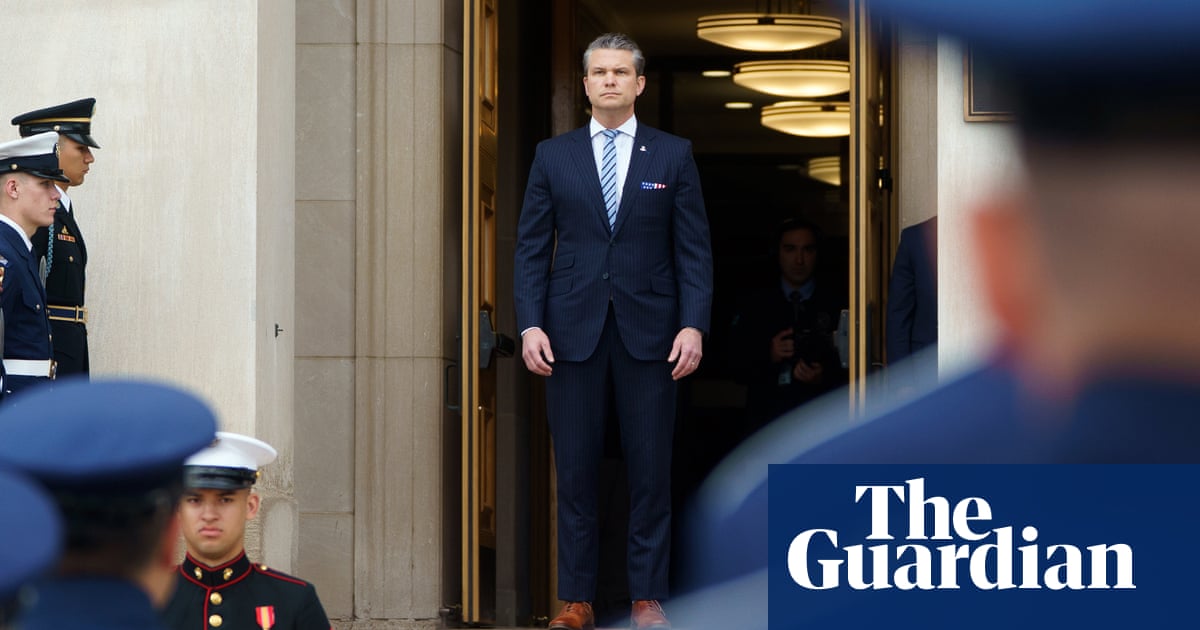Exasperated by the turmoil that has doggedPete Hegseth’s office in recent weeks, the White House will block the US defense secretary’s choice of chief of staff and select a candidate of its own, according to two people familiar with the matter.
Hegseth had suggested giving the chief of staff position to Marine Col Ricky Buria after the first person in the role, Joe Kasper, left last month in the wake of acontentious leak investigationthat brought the ouster of three other senior aides.
But the White House has made clear to Hegseth that Buria will not be elevated to become his most senior aide at the Pentagon, the people said, casting Buria as a liability on account of his limited experience as a junior military assistant and his recurring role in internal office drama.
“Ricky will not be getting the chief position,” one of the people directly familiar with deliberations said. “He doesn’t have adequate experience, lacks the political chops and is widely disliked by almost everyone in the White House who has been exposed to him.”
The White House has always selected political appointees at agencies through the presidential personnel office, but the move to block Hegseth’s choice at this juncture is unusual and reflectsDonald Trump’s intent to keep Hegseth by trying to insulate him from any more missteps.
The intervention comes at a time when Hegseth’s ability to run the Pentagon has come under scrutiny. It also runs into the belief inside Trump’s orbit that even the president might struggle to justify Hegseth’s survival if the secretary does not have a scandal-free next few months.
The secretary is not expected to have to fire Buria after he agreed to a compromise: to accept the White House’s choice for a new chief of staff in exchange for keeping Buria as a senior adviser, the people said. The White House and Pentagon did not respond to a request for comment.
The internal staffing situation at the Pentagon has outsize consequences because Hegseth’s front office is involved in policy deliberations and sensitive decision-making at the defense department, which has a budget of more than $800bn and oversees more than 2 million troops.
Hegseth’s office is currently operating at a fraction of the size it normally does, with roughly five senior advisers. “There’s so much that’s not happening because no one is managing the front office,” an official with knowledge of the situation said.
The possibility of Buria becoming chief of staff spooked the White House for multiple reasons. For one, the White House presidential personnel office previously declined Hegseth’s request to make him a political appointee, but Buria has been operating in such a capacity anyway, two officials said.
Buria appears to be considered by the career civilian employees in the deputy defense secretary’s office as the acting chief, not least because he recently moved into the chief of staff’s office and has taken steps to redecorate by bringing in new furniture, the officials said.
Buria also recently failed to pass a polygraph test that was administered as part of the leak investigation. The polygraph came back as inconclusive, the officials said, a result that would ordinarily require him to retake the test before he could be cleared.
In an additional twist, Buria was identified as having sent some of the messages in at least one Signal group chat about sensitive and imminent US missile strikes against the Houthis in Yemen, the officials said. The Wall Street Journalearlier reportedon Buria’s access to Hegseth’s personal phone.
Buria, a former MV-22 pilot who served in Iraq and Afghanistan, started his ascent at the Pentagon as a junior military assistant (JMA) under Joe Biden’s defense secretary, Lloyd Austin. In the prestigious but unglamorous role, a JMA is something of a personal aide but with access to high-level operations.
When Hegseth arrived, Buria continued his role as the JMA and quickly became close with Hegseth and his wife, Jennifer, traveling with the secretary and spending time at the secretary’s residence at Fort McNair.
Buria’s influence expanded after Hegseth fired his boss, the air force Lt Gen Jennifer Short, who had been serving as the senior military assistant. Buria stepped into the job, typically held by a three-star officer, and joined bilateral meetings with foreign dignitaries. The National Pulsereported he also attendedforeign policy briefings.
When Army Lt Gen Christopher LaNeve arrived as Hegseth’s permanent senior military assistant, it was expected that Buria would return to his JMA position. Instead, he told officials he would retire from the military to become a political appointee in Hegseth’s office and took advantage of the power vacuum resulting from Kasper’s departure.
